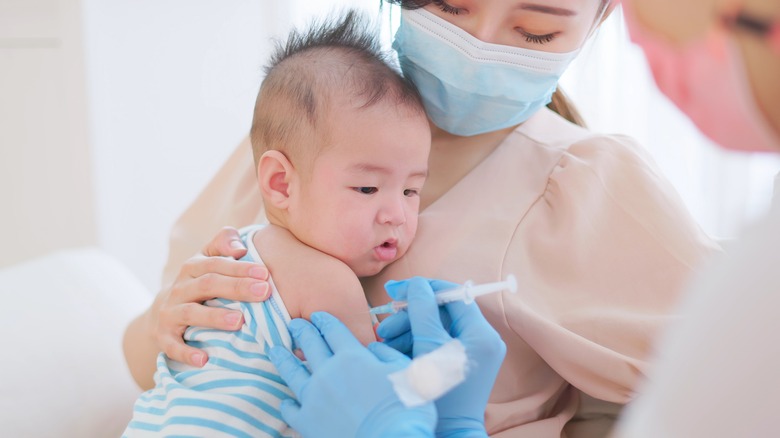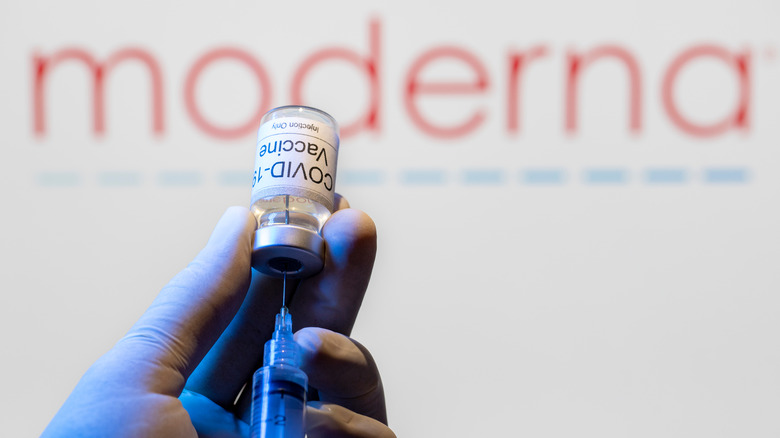What We Know About Moderna's Vaccine For Young Children
In a public announcement made Thursday, Moderna confirmed they are in the process of seeking FDA-approval for the emergency use of their pediatric COVID-19 vaccine for children ages 5 and younger (via The New York Times). Although sights had initially been set on late April for authorization, Moderna is now expected to complete a data submission by early May, with vaccine regulators projected to potentially reach a decision in June, reports NPR.
Addressing the disappointment of some parents regarding the setback, Moderna's chief executive officer Stéphane Bancel announced in a public statement, "We believe [the vaccine] will be able to safely protect these children against SARS-CoV-2, which is so important in our continued fight against COVID-19, and will be especially welcomed by parents and caregivers" (via NPR).
The choice to submit for authorization comes after receiving results from a clinical trial in which two 25-microgram doses of the Moderna vaccine were issued to 2,500 children between 6 months of age and 2-years-old, as well as 4,200 children 2 to 5 years old, reports CNN. The second dose was administered 28 days following the initial dose (via NPR).
Results of Moderna's clinical trial with young children
Study findings showed that Moderna's pediatric vaccine provided levels of protection comparable to that of two 100-microgram doses administered to young adults between 18 and 25 (via CNN). The New York Times reports that protection rates against the development of symptomatic cases of COVID-19 stood at 51% in children below the age of 2. Protection rates were 37% for those between the ages of 2 and 5. Commenting on these findings, Dr. Paul Burton, Moderna's chief medical officer, told NPR, "That means that you're going to reduce your chances of getting [the] disease by about a half. That's very important for these kids."
Addressing what some might view as lower success rates, Moderna explained how Omicron was responsible for 80% of COVID-19 cases detected during the trial — a variant known for bypassing vaccine immunity more so than previous strains, thereby producing numbers that appear less effective in comparison to those seen in previous data (via The New York Times).
No instances of myocarditis were reported in response to the vaccine, with most frequent side effects including fever and pain at the injection site, reports CNN. With Pfizer soon expected to submit their own request for vaccine authorization in young children, regulators hope to review the data from both companies at once.


